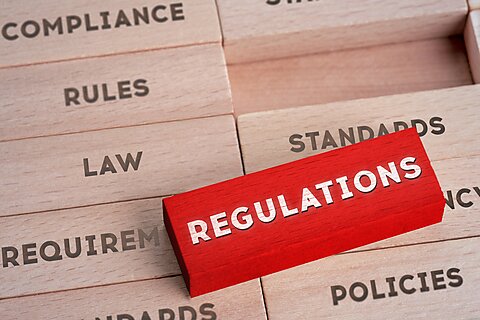
Internet Regulation Is Back: FCC Refuses to Retire “Net Neutrality” Rules
The Federal Communications Commission today voted to reinstate Title II regulations for the Internet, needlessly extending the so‐called net neutrality controversy into its third decade and opening the agency up to legal challenges. In 1996, before most Americans knew the sound of an AOL login dial tone (ask your parents), Congress passed a law announcing a national policy “to preserve the vibrant and competitive free market that presently exists for the Internet … unfettered by Federal or State regulation.” Lawmakers wanted to protect Internet services and companies from 70 years of accumulated telecommunications and media rules, including licenses to operate, content restrictions, and frequent, politicized rulemakings.
That deregulatory policy has been a resounding success. It was not obvious in the early 1990s that US tech companies would lead the world, but today, the largest Internet and artificial intelligence companies—Alphabet, Meta, Microsoft, Amazon, and the like—call the US home. Further, on the infrastructure side, there has been tremendous investment and improvement, including the millions of miles of new fiber optics, the roadside conduit, the radio spectrum, and cell towers.
The telecom industry spends over $100 billion spending in capex annually. Even before the pandemic and new federal spending, FCC data said around 130,000 rural households were getting high‐speed broadband for the first time every month.
Since the early 2000s, amid this rapid progress, the so‐called net neutrality movement has urged the FCC to apply 1930s telecom laws—Title II—to Internet access services. While appreciating the Internet’s democratic possibilities, regulation advocates have long regarded the prevailing Internet and tech culture as too libertarian, too disruptive, and too troll‑y to leave to market forces and general law. Thus, these advocates argued regulation by experts was needed.
Many in the FCC didn’t need much encouragement; the agency’s areas of regulation—telegraph, telephone, broadcast‐TV, and cable‐TV providers—are obsolete, dying, or being reinvented with Internet technology. The Internet undermined the FCC’s authority over media distributors and regulation advocates inside and outside the agency realized that the FCC needed new problems to “solve.”
For many of us who have followed the net neutrality controversy, the FCC’s attempt to re‐impose Title II is a tremendous waste of the FCC’s expertise and time. Since 2003, when “net neutrality” was coined, millions of households have seen their Internet speeds increase from 200 kilobits per second to a gigabit per second, due in part to the deregulatory policy of Congress and a lot of infrastructure investment. It’s difficult to identify another service Americans use regularly that has seen a 5,000-times quality improvement in 20 years.
Title II regulations, created to police the Ma Bell phone monopoly, would transform Internet access from one of the least‐regulated services in the United States into a national common carrier service. Access providers would be subject to second‐guessing by regulatory lawyers, interminable waiver proceedings, and the FCC’s vague, new “general conduct standard.”
The FCC faces immense legal challenges. For one, it’s hard to square Title II common carrier regulation of the Internet with Congress’ deregulatory policy for the Internet. Courts struck down two previous attempts at net neutrality regulations, though the FCC extended Title II to Internet access companies for a couple years before it was rescinded by the Trump administration. Further, net neutrality enforcement creates complex First Amendment problems that the FCC seems indifferent to. Finally, the FCC claims it has the power to be the judge, prosecutor, and jury in net neutrality enforcement, an argument that seems to violate the separation of powers, and will likely receive a chilly reception from courts.
If history is any guide, these Title II rules will compel the thousands of small Internet service providers to “lawyer up” and keep abreast of the unpredictable interpretations and pronouncements of Washington, DC, regulatory lawyers. Larger companies will grow more sclerotic and risk‐averse, as the pernicious revolving door between regulators and corporation spins faster. Hopefully, the net neutrality controversy will be retired—by courts or by Congress—before it does much damage to the Internet services and infrastructure sectors and before it enters a fourth decade.



